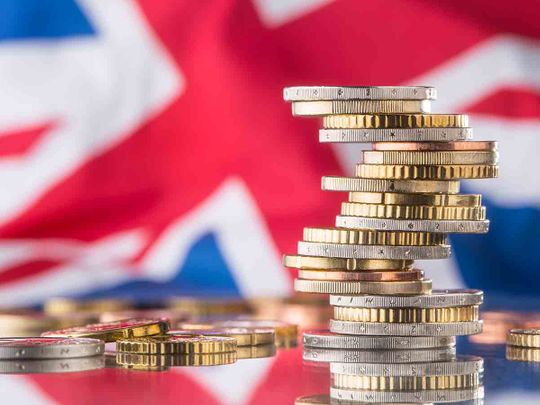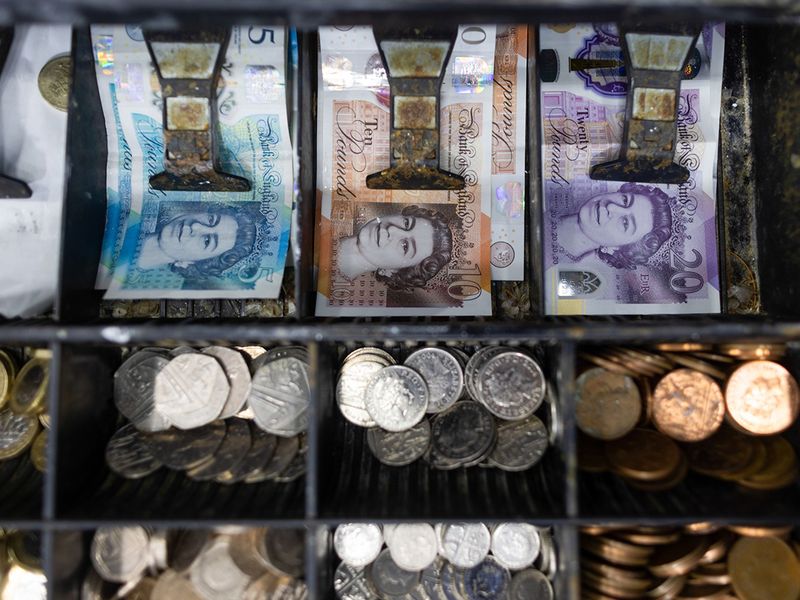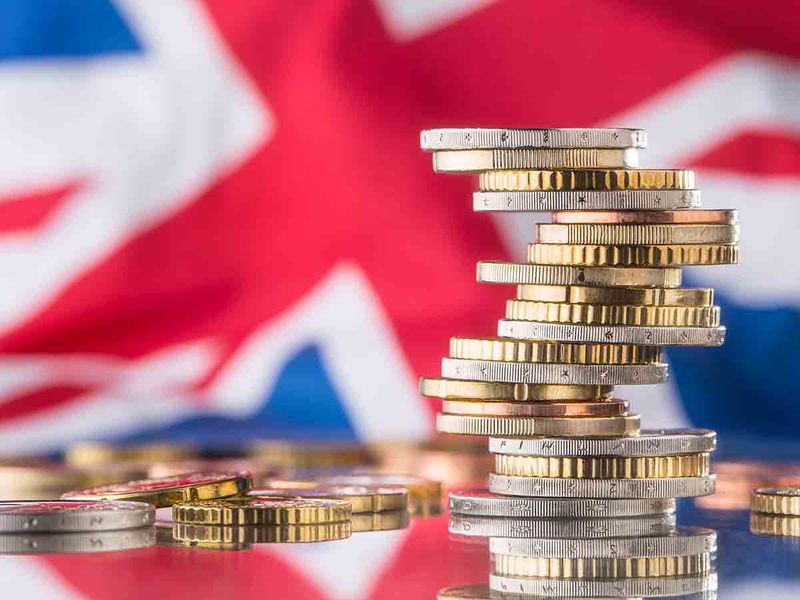
Dubai: With investing, you’re often told that you not only make your money work for you, you also build retirement wealth in the process. However, it’s easier said than done when investing overseas.
When it comes to expat investors, fluctuating exchange rates, interest rates and cost of living are just a few of the several challenges affecting their decision to invest in a country overseas like the UK.
For investing in Britain, while there are a vast variety of investment options that are typically available for UK residents and expats alike, having a clear understanding of your financial goals is essential. This means short-term, long-term and even medium-term goals.
For example, by investing in a UK property, not only can you create a steady income stream, but you will also have a place to live when you return.

Image Credit: Bloomberg
What are your investment options in the UK?
“While an Individual Savings Account (ISA) is an ideal fix for people looking to invest in the UK, these are only available to UK residents,” said Andrew Bailey, an independent real estate consultant based in the UK, but is currently working out of Dubai.
“Moreover, most expats, especially those who have been abroad for an extended period, won’t be classed as UK residents. However, like an ISA, a pension scheme is a tax-efficient way of saving and a crucial component of your overall retirement planning strategy.”
However, the term ‘pension’ is quite far-reaching, and while there are numerous products currently available to choose from currently, the two that expats can really take advantage of are QROPS and SIPPs. Let’s look into these options a bit more in detail.
How do overseas pension schemes like ‘QROPS’ and ‘SIPPs’ work?
“While QROPS is essentially a label for a foreign pension scheme that meet the government’s revenue and customs rules to receive transfers from UK-registered pension, SIPPs is a type of personal pension and works in a similar way to a standard pension plan,” added Bailey.
“QROPS plans offer more flexibility and financial benefits, however, for those who want a more hands-on approach, Self-Invested Personal Pensions (SIPPs) allow you to make investment decisions yourself. Ultimately, you control where to invest your money.”
Looking to buy a property in Britain? What to know
Investing in property has widely been viewed by veteran investors as a secure addition to any portfolio. And with the UK property market booming, and showing no signs of slowing down, these industry experts agree that now is a time like any other to go ahead with plans to purchase real estate.
According to data from the UK government’s Office for National Statistics (ONS), the average house price in the UK is around GBP295,000 (Dh1.3 million), as at November last year. The figures represent an increase by 10.3 per cent in the year to November, down from 12.4 per cent in October.
“An investment in property has multiple benefits. It can produce a regular source of income if you rent it out. Also, you will own an asset that has the potential to increase in value over time,” said Brody Dunn, an investment manager at a UAE-based asset advisory firm.
“Even if you decide not to sell, you will have a place to live if you return to the UK. However, be aware that as an expat, investing in property is not as straightforward.”

Image Credit: Shutterstock
Is it worth investing in UK-based stocks and shares?
Overall, it’s understandably a personal preference what you choose to invest in, be it property or stocks. However, when it comes to investing, diversifying your assets, by also investing in stocks and shares can provide some security if one or more assets fall in value.
“Higher-than-expected interest rate hikes from the US and the Bank of England, persistently high inflation, lower consumer spending, a recession, are just some of the factors that could result in further market weakness going forward. So buying shares now is not guaranteed to pay off,” added Dunn.
“But when you do invest in the London stock market, like any other stock exchange, you are buying and selling shares in a company or buying individual shares in a firm. However, there are other options like mutual funds, which are managed investment funds that expose you to different assets and classes.”
Generally, mutual funds can help you easily build a diverse investment portfolio, allowing you to spread and lower the risk. However, keep in mind that your returns are often based on the performance of the company. The better it performs, the more your share increase in value.
What about expats investing in offshore bonds?
“Offshore bonds are a tax-efficient option for expats as they typically avoid capital gains tax and deferred income tax. As long as the correct bonds are in place, the investment will remain tax-free, even if you return to the UK,” added Dunn.
“So you are setting aside your hard-earned savings in what is basically a life insurance policy that acts as a tax wrapper when you invest in an offshore investment bond. The bond can hold numerous investment funds that are held outside of the UK.”
Bottom line: Expats are to know tax implications when investing in the UK
Even though the UK has one of the lowest corporation tax rates in the G20 group of countries and has a rate which is highly competitive within Europe, when it comes to taxes, it’s even more complicated as an expat as there are tax rules for multiple countries to consider.
Double taxation agreements may be in place, depending on where you are in the world. These exist between one country and another to ensure that you are not taxed on the same income twice. Not all countries have a double taxation agreement in place with the UK.
“If you are considering buying UK stocks and property, you’d be happy to know that UK assets are going cheap. Stock markets are down, bond prices are tumbling and global market researcher Credit Suisse reckons property prices could fall by 10 per cent to 15 per cent,” added Bailey.
But as an expat investor, Bailey reiterated that one should always consider currency risk. Currency risk, also known as exchange rate risk, is the risk that investors’ assets will be negatively affected by currency depreciation.
“Since currency rates are constantly changing, investors trading in different currencies should take this into account when making foreign investments. If you are living abroad but hold investments in UK, exchange rates can have an impact,” he added.






